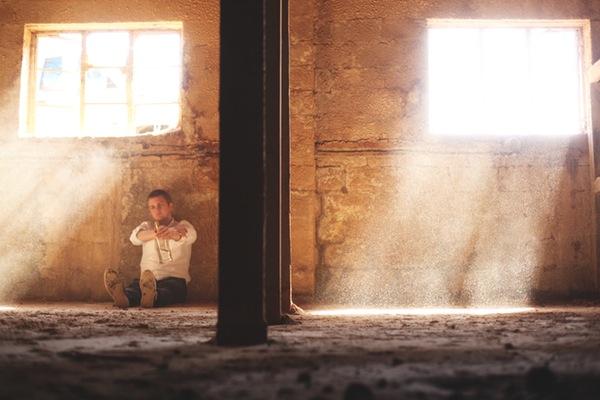It’s normal for teenagers to experience bouts of sadness or mood swings. After all your teenage years are when your hormones are changing. You’re often in-between the stage of being too old to participate in certain activities and dialogue – yet too young to be considered an adult or mature enough to participate in other activities. Everything is pretty much changing and you feel the pressures of being in-between. However, when bouts of sadness turn into months of sadness and months of crankiness there could be a larger issue developing known as depression.

It’s the leading mental illness amongst teenagers in the United States and at least 20 percent of teens will experience depression before they enter adulthood.
Fourteen percent of teens have suffered from an episode of depression within the last year and approximately 10 to 15 percent of teens have symptoms at some point between middle school and high school. Seventy percent of teens will likely have more than one episode of depression before they are adults. Girls are twice as likely to experience this illness than boys.
Causes of Depression
There are a few identifiable causes of teen depression.
- Genetics can be a factor in teen depression. If a parent or close family member has experienced depression at any time it is likely that a teen belonging to that family will develop depression at some point as well
- Peer pressure creates depression amongst teens. Teens are in school with their friend for the majority of the day. The constant pressure of trying to fit in, bullying on comparing one’s self to those around them can cause a depressive state
- Having relationship problems can cause teen depression. For example a breakup or feeling unwanted by someone they are interested in dating
- Parents who are going through a divorce can be a factor of depression for teenagers. A divorce is a major life change for everyone involved and also can be considered as a traumatic event for the children of the family unit
- Traumatic events such as death, accidents, or any event that is detrimental and causes trauma.
- Financial problems can cause teenagers to become depressed. Although parents are typically responsible for the finances of the home, if resources are scarce it affects everyone including teens
- Pressure to maintain grades and balance extracurricular activities in school.
- Seasonal Depression (SAD): Often caused by a lack of sunlight due to the nights drawing in earlier.
Most Common Types of Teenage Depression
There are four common types of depression.
- Major Depressive Disorder (MDD), which is when a person experiences intense depressive states that can last for weeks or even years. The depressive states are separated by periods of time when the person has a stable mood. Usually categorized as a brain disorder causing a significant effect in one’s daily life.
- Dysthymic disorder: Those who suffer from dysthymic disorder will have depressive states, but the states are not as intense as one who suffers from MDD. Dysthymic disorder can last for about a year or two.
- Bipolar disorder which is also known and referred to as manic depression is defined by mood swings that can be extreme emotional highs to extreme lows. Bipolar disorder is a serious condition and in some cases can be linked back to genetics.
- Adjustment disorder is a form of depression that is experienced when a person is having a difficult time conforming to changes such as moving, change in school, and death in the family. This form of depression is short term.
12 Signs of Depression
- Long-lasting sadness.
- Constant crankiness and irritability.
- Inability to have fun during activities they typically enjoy.
- Acting immaturely or younger than their age.
- Constant fatigue.
- Trouble sleeping through the night.
- Changes in appetite, which could be an increase (overeating) or lack of an appetite.
- Drops in grades and disinterest in academia and or extra-curricular activity.
- Lack of empathy
- Lack of motivation.
- Low self-esteem
- Physical/emotional neglect.
Treatments for Depression
Eighty percent of teenagers don’t receive the help or treatment they need, with untreated depression being the number one cause of suicide. Currently, suicide is the third leading cause of death amongst teens, with statistics showing that every 100 minutes a teen takes his or her own life, somewhere in the world.
The treatments that are available for teenage depression are a combination of therapy styles and also prescribed medication. Teenagers also have the option to work with a counselor where they are encouraged to express their emotions, discuss family and personal concerns and create a daily plan/schedule that works for them. Group therapy is another form of therapy where a therapist can come to your home and have a session with your family together or with a group of peers that may have faced the same life events.
Cognitive therapy can be used to help treat teenage depression. Cognitive therapy helps people identify thoughts that cause stress and assist with reconstructing negative thinking.
The last form of therapy used to treat depression among teens is called Adventure–based therapy. Adventure therapy is a program that takes teens on excursions for therapeutic interventions.
There are two drugs, Prozac and Lexapro, that have been approved by the Food and drug administration (FDA) as a suitable treatment for teenage depression. Both drugs have serious side effects that should be taken into account before deciding this treatment is a fit for your teen.
For patients who can’t (or don’t prefer to) take medication, there is another option for a treatment called transcranial magnetic stimulation, or TMS, which is a completely-non invasive method and works very well.”
It’s important to develop open lines of communication with teenagers as an effort to prevent depression. Getting teens involved with support groups that welcome freedom of expression can stop them from internalizing negative feelings, and thoughts, which can prevent further development of their depressed feelings.
